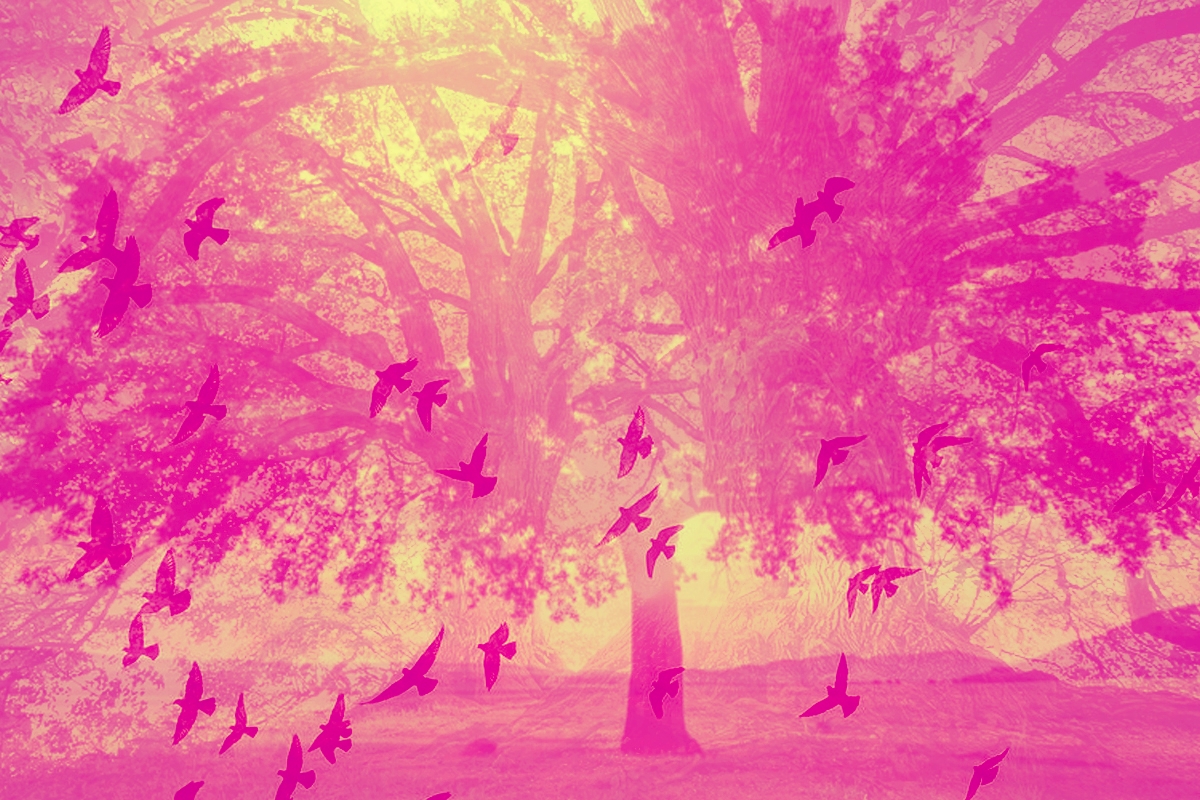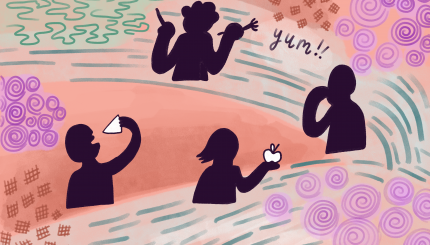In Exodus, as Moses observes the burning bush, a voice tells him to take off his shoes because hamakom asher ata omed, admat kodesh hi — the place on which you are standing, she is holy ground.
This raises the question: Are we to treat the earth on which we stand as holy? And if so, how?
The first chapters of Genesis treat the natural world as God’s creation. The earth becomes a partner with the divine in forming the plants, the animals, and ultimately humans as well. The Torah clearly understands and honors the earth as the raw material for life.
In other parts of the Bible, the earth is a witness to the divine. Consider Psalm 148, where the sun, moon, stars, waters, winds, fruit trees, animals, and birds all praise God, along with the peoples of the earth. While Maimonides comments that we shouldn’t therefore think the elements are conscious, that’s not at all clear from the psalm, which uses the same word — hallelu (“praise”) — for what humans do and what animals, plants, and elements do. In Psalm 98, rivers clap hands and mountains sing.
With your help, My Jewish Learning can provide endless opportunities for learning, connection and discovery.
The earth is also treated as a covenantal partner with God. In Genesis 9:13, God makes a covenant with the earth not to destroy it again by flood. In Leviticus 25, God decrees that the land must have a sabbatical year in order to rest, and that if the people violate this commandment they will be sent into exile. Throughout the Bible, the earth has its own relationship with God, its own spiritual personality, and its own inalienable rights.
Humans too are expected to be in relationship to the natural world. Shabbat, that most fundamental of Jewish practices, is established as a zecher l’ma’aseh vereishit (“a reminder of the work of creation”). The festivals of Passover, Shavuot and Sukkot also bind us to the earth and its seasons by honoring the cycles of planting and harvest.
The Jewish mystics added to this perception of the wonder of the earth by understanding the earth and the elements as infused with divine presence. In the Zohar, the Shechinah (the divine presence manifesting within the physical world) is described as earth, sea, fire and an apple orchard. The Baal Shem Tov, the founder of the Hasidic movement, chose to pray outside in nature because of the presence of this sacred energy there. And the Hasidic master Nachman of Breslov wrote: “A person should go out to the fields to pray. All the grasses will join you. They will enter your prayers and give you strength to sing praises to God.”
For many of us, these texts and ideas are relatable. We’ve seen sunsets, oceans, high peaks, hummingbirds, and been moved to awe. Contact with nature makes us feel that we are standing in the presence of something greater than ourselves and maybe also that we are part of something larger, a web of divine becoming. Contemporary eco-theologians are exploring this intuitive connection between human beings and what David Abram calls the “more-than-human world.”
Whatever our theology about the natural world, there is a very simple Jewish way of acknowledging the wonder that the natural world awakens in us, and that is the practice of blessing natural phenomena. This practice enhances our perception that the earth is a wonder, a witness, and a spiritual mystery.
In certain blessings, we bless the natural world as we consume it, as when we bless the food we eat. With other kinds, we simply meditate on the beauty or awe-inspiring quality of the natural world. These include blessings for natural phenomena of great beauty or magnitude — roses, mountains, thunder, lightning and earthquakes.
Both types of blessings make us conscious of our gratitude for all that we have and are. And they remind us that we are not separate from nature. We consume it and appreciate it at the same time as we are it.
Consider the blessing over rain.
בָּרוּךְ אַתָּה יְיָ אֱלֹהֵינוּ מֶלֶךְ הָעוֹלָם הַטּוֹב וְהַמֵּטִיב
Baruch ata adonai eloheinu melech ha’olam hatov vehameitiv.
Blessed are You, YHWH our God, ruler of the cosmos, who is good and does good.
Maimonides says a beautiful thing while discussing the blessing for rain: “When is the blessing for rain said? From the time when the water swells upon the ground and the continuing rain causes bubbles to form on the surface of the water, and these join together.”
In other words, to know when to say this blessing, one has to observe the natural world very carefully. One cannot say blessings without establishing an intimacy with nature.
Or consider the blessing recited over the sea:
בָּרוּךְ אַתָּה יְיָ אֱלֹהֵינוּ מֶלֶךְ הָעוֹלָם שֶׁעָשָׂה אֶת הַיָּם הַגָּדוֹל
Baruch ata Adonai eloheinu melech ha’olam she’asa et hayam hagadol.
Blessed are You, YHWH our God, ruler of the cosmos, who has made the great sea.
That the sea has its own blessing is deeply moving. God’s first relationship in Genesis is with the sea. Genesis 1:2: “The earth being unformed and void, with darkness over the surface of the deep [tehom in Hebrew] and a wind from God sweeping over the water.” As Kabbalah scholar Nathaniel Berman notes, the sea embodies the forces of chaos but also the forces of creativity. The contemporary Bible interpreter Avivah Zornberg understands tehom as the “murmuring deep”—the ocean of sound that precedes creation. Whenever we see the sea and recite the blessing, we recall this moment of meeting between God and the great sea, and the vast powers that are the root of the creation we know.
The practice of blessings, so basic to Jewish life, reminds us of the beauty of the natural world. It opens our hearts to the oneness of creation, a oneness Rabbi Abraham Isaac Kook described as “one lofty collective soul … divided into many separated parts.” This sense of unity inspires us and makes us less lonely as human beings, and more conscious of our gratitude and wonder.
Blessing practice also reminds us that we need the natural world for our very being. Thus the practice of blessing brings us back to the covenant with the earth: We must care for the planet so that it goes on caring for us. And as we do so, we can find elevation and inspiration in our ongoing awe at the complex beauty of existence.
As the prophet Habbakuk says: Ki timalei ha’aretz ladaat et kevod Adonai, kamayim leyam mechasim. The earth will be full with knowing God’s presence as the waters that cover the sea.
Want more? MJL’s “Discovering Jewish Spirituality” email series will guide you through authentic Jewish methods of bringing spirituality into your everyday experience. Sign up here.
Enhance your spirituality journey by joining our weekly Jewish Meditation Moment for a brief Jewish teaching followed by a guided meditation.
Zohar
Pronounced: ZOE-har, Origin: Aramaic, a Torah commentary and foundational text of Jewish mysticism.



